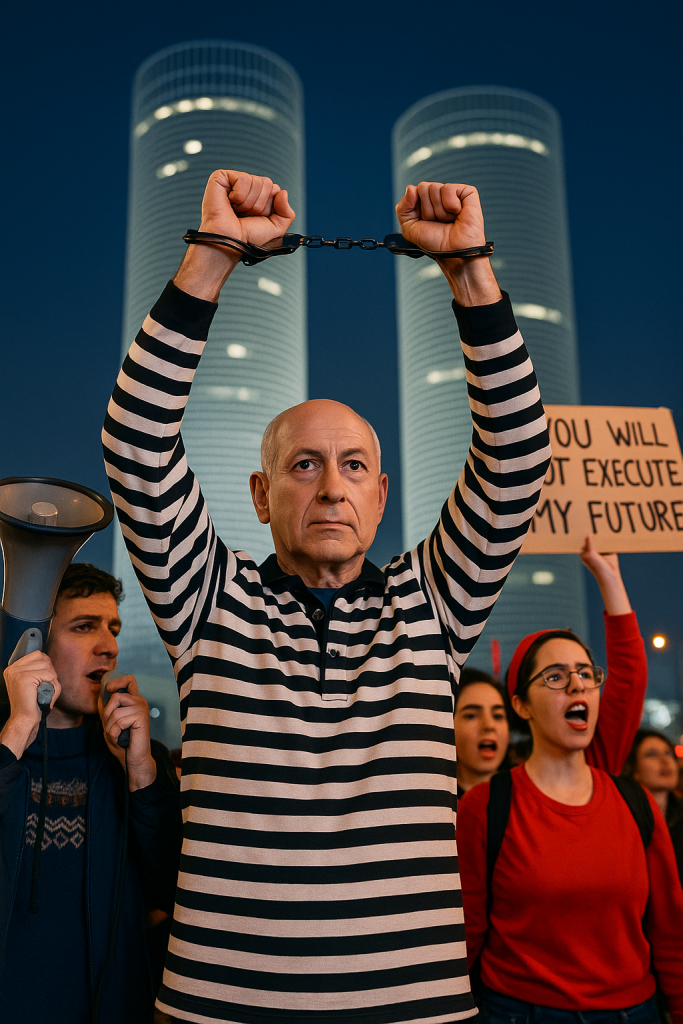The House Judiciary Committee has launched a significant accusation against the Biden-Harris administration, alleging it directed U.S. taxpayer dollars toward anti-Netanyahu protests in Israel prior to the devastating Hamas attacks on October 7. This development has added a new dimension of controversy as lawmakers call for increased transparency regarding U.S. foreign policy and financial involvement in the region’s political upheavals.
The protests in question occurred in the months leading up to the Hamas attack, focusing on opposition to Prime Minister Benjamin Netanyahu’s government. According to members of the Judiciary Committee, these demonstrations were reportedly supported, directly or indirectly, through U.S. funding mechanisms. These claims raise sensitive questions about whether American funds were funneled in a way that could have influenced Israeli domestic politics during a critical period of heightened security concerns.
Committee members argue that the Biden administration’s alleged financial support for groups opposing Netanyahu may have unintentionally undermined Israel’s political stability just before Hamas launched its coordinated assaults on southern Israel. One committee official emphasized that taxpayer money should not be used in a manner that appears to interfere in the internal affairs of an allied nation, especially amid escalating tensions.
The accusations have sparked debate within political circles, considering the delicate nature of U.S.-Israel relations and the strategic alliance maintained over decades. Proponents of the administration’s foreign policy highlight the longstanding U.S. practice of supporting democratic movements and civil society worldwide as a cornerstone of American diplomacy. However, critics argue that such support must be carefully calibrated to avoid perceptions of meddling or exacerbating conflicts.
Despite these allegations, officials from the Biden-Harris administration have denied any intentional funding directed specifically toward anti-Netanyahu protest groups. Spokespersons have pointed out that U.S. foreign aid funds numerous initiatives aimed at promoting democracy, human rights, and stability in the Middle East, often through third-party organizations. They stress that funding decisions go through rigorous vetting to ensure compliance with U.S. laws and foreign policy objectives.
The timing of the accusations, set against the backdrop of the tragic October 7 Hamas attacks that resulted in significant loss of life and heightened regional instability, has intensified congressional scrutiny. Lawmakers from both sides of the aisle have called for a detailed investigation to clarify how and where taxpayer dollars were spent and whether any financial support had unintended consequences.
The House Judiciary Committee has indicated plans to hold hearings and subpoena relevant documents from government agencies involved in foreign assistance while exploring the legal frameworks governing such funding. This inquiry aims to provide greater accountability and determine if policy adjustments are necessary to safeguard U.S. interests and international partnerships.
Meanwhile, Israeli officials have remained largely circumspect in public comments regarding the allegations. Some observers expect that the ongoing investigation and media attention will prompt more candid discussions about external influences on Israel’s complex political landscape.
As this story develops, it underscores the challenges facing U.S. policymakers in balancing support for democratic principles abroad with respect for sovereign nations’ internal affairs. The intersection of foreign aid, political movements, and national security continues to be a delicate arena where transparency and careful oversight are paramount.



